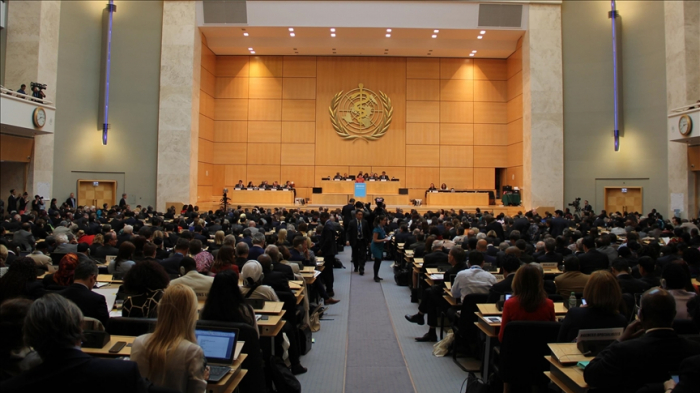The world has tools at its disposal to end the COVID-19 pandemic, but everyone needs access to jabs to do so, the World Health Organization head said on Wednesday.
"The issue is to implement all the tools we have comprehensively -- vaccines plus the other public health measures," WHO Director-General Tedros Ghebreyesus told journalists at a webinar.
"Unless we vaccinate the whole world; unless we apply the comprehensive approach all over the world, I don't think we can end this pandemic," Tedros said.
He said that 2021 was a year in which the world lost 3.5 million people to COVID-19 – "more deaths than from HIV, malaria, and tuberculosis combined in 2020."
"While some countries are now rolling out blanket booster programs, only half of WHO's member states have been able to reach the target of vaccinating 40% of their populations by the end of the year because of distortions in global supply," the WHO head said.
40% target missed
He said that enough vaccines were administered globally this year and that the 40% target could have been reached in every country by September if those vaccines had been distributed equitably through COVAX.
However, the supply of vaccines is improving, Tedros said, adding that on Wednesday, the COVAX arrangement shipped its 800 millionth vaccine dose with half of those jabs delivered in the past three months.
"Our projections show that supply should be sufficient to vaccinate the entire global adult population and to give boosters to high-risk populations by the first quarter of 2022," he said.
However, only later in 2022 will supply be sufficient for extensive use of boosters in all adults.
The WHO's Strategic Advisory Group of Experts on Immunization (SAGE) had expressed concern that blanket booster programs will exacerbate vaccine inequity.
WHO had issued updated guidance for health workers, recommending the use of mask, in addition to other personal protective equipment, when entering a room where there is a patient with suspected or confirmed COVID-19.
"Respirators, which includes masks known as N95, FFP2, and others, should especially be worn in care settings where ventilation is known to be poor," said Tedros.
And yet many health workers around the world are unable to access respirators.
"We, therefore, ask manufacturers and countries to scale up the production, procurement, and distribution of both respirators and medical masks for use in health and care settings," the WHO chief said.
More about: #WHO















































